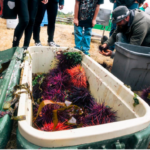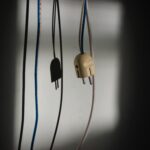Trevor’s guest lecture really made us dig deep on our high school experiences. For me, grades 9, 10, and 11 were pretty bleak. I had a difficult time socially, as I grew up in a really small town and my grade only had about fifteen students. Academically, I was always a good student but struggled to feel engaged and valued in my school community. It was a fairly science and sports focused school, and being interested in the arts, there wasn’t much room for me to explore my passions. I felt like I didn’t have much agency over my learning at all- thanks to a rather controlling administrative team that gave students little choice about their day to day activities. Trevor’s question about being “pushed down” really resonated with me – I never felt like most of my teachers cared or were encouraging, I rarely felt recognized. I ended up moving away from my hometown to live with my aunt and uncle in Winnipeg for my grade 12 year as I was unhappy at my old school. Here I was able to create more meaningful friendships and was more engaged in courses that I was actually passionate about and felt more valued by the teachers. I’m absolutely glad I made this change when I was in high school. But I still remember the teachers who I disliked and what they did- and that helps me as a future educator as I know I won’t be doing those same things that made me feel so small and unimportant as a student.
When Trevor spoke about showing humanity in your teaching, that struck a chord with me. Showing empathy and kindness and humanity in the classroom is my number one goal as a future teacher. Creating an environment where students feel valued, safe, and important as learners is absolutely a priority of mine. When he asked us to reflect upon what defines success in school, I immediately wrote down fostering creativity and helping students figure out what they’re passionate about. I know how difficult it can be to feel like your passions aren’t important, and I would never want students to feel that way in my future classroom. This is where inquiry comes in- it’s definitely a strategy I’ll be using with students, at different levels and at different points throughout the year depending on the structure and content. I see inquiry as a way to develop curricular competencies through the exploration of content and big ideas.
I also enjoyed Trevor’s idea about grade books. Admittedly, even though I know how important feedback is, I always jump to the grade before reading comments. I like the model of just providing feedback to the student and recording the mark separately in a grade book.
Trevor’s passion and smarts when it comes to teaching and understanding learners was inspiring and I absolutely plan to use some of his ideas and techniques moving forward.





